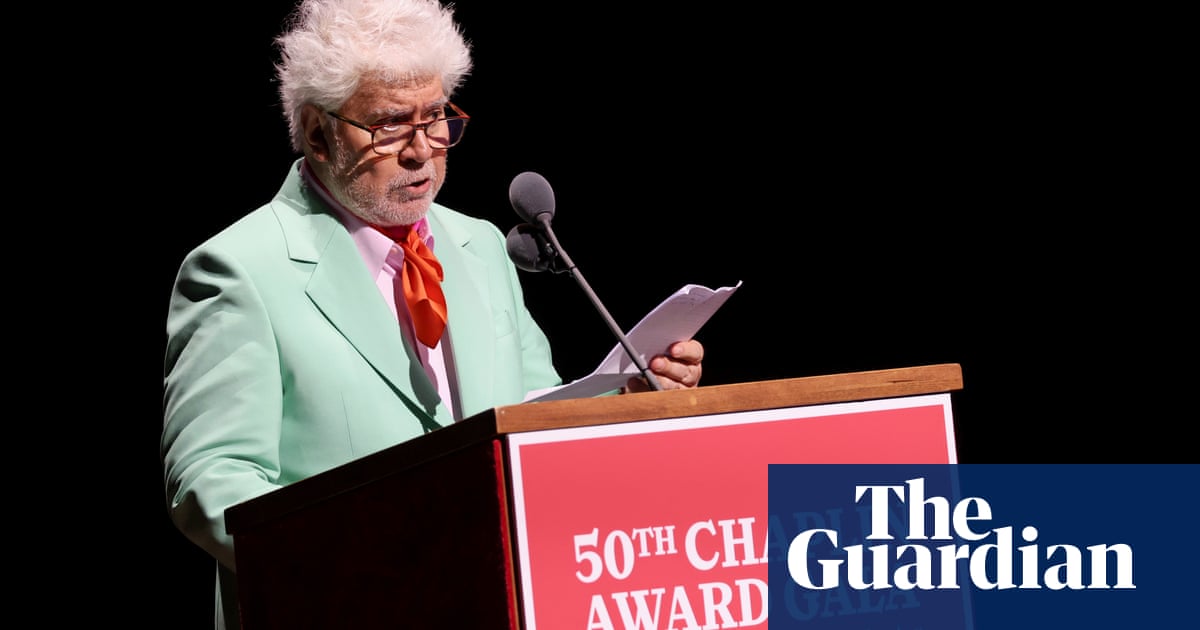The veteran Spanish directorPedro Almodóvarhas launched a broadside against the US president, Donald Trump, while accepting an award in New York.
Speaking on stage at the Lincoln Center on Monday evening, he said he had been in two minds as to whether to travel to the US to pick up his Chaplin award.
“I doubted if it was appropriate to come to a country ruled by a narcissistic authority, who doesn’t respect human rights,” he said. “Trump and his friends, millionaires and oligarchs, cannot convince us that the reality we are seeing with our own eyes is the opposite of what we are living, however much he may twist the words, claiming that they mean the opposite of what they do. Immigrants are not criminals. It was Russia that invaded Ukraine.”
Almodóvar continued: “Mr Trump, I’m talking to you, and I hope that you hear what I’m going to say to you. You will go down in history as the greatest mistake of our time. Your naiveté is only comparable to your violence. You will go down in history as one of the greatest damages to humanity … You will go down in history as a catastrophe.”
The director, who shot scenes from his most recent release,The Room Next Door, outside the auditorium where he was speaking, compared his experiences growing up in Franco’s Spain with life under Trump in today’s US.
He credited his homeland’s evolution into democracy in the late 70s and early 80s with his own flourishing as a director.
“It is impossible to explain what that feeling of absolute liberty meant for a young person who wanted to make films,” Almodóvar said.
Those paying tribute to the director included Dua Lipa, John Turturro, John Waters, Rossy de Palma, Mikhail Baryshnikov, Martin Scorsese, Tilda Swinton and Antonio Banderas.
Waters called Almodóvar “the best film-maker in the world” while Lipa praised his ability to “just completely normalise trans and gay roles or storylines, something that feels these days like quite a radical act”.
Sign up toFilm Weekly
Take a front seat at the cinema with our weekly email filled with all the latest news and all the movie action that matters
after newsletter promotion
Earlier this week,Karla Sofía Gascón, the Spanish actor who became the first trans star nominated for an Academy Award, expressed her hesitation about returning to the US.
“If they want to discriminate against me because of my sexuality, then it will be very difficult,” she told the Hollywood Reporter.
“But I hope so. I’m looking forward to doing millions of things in the United States because I think it’s a wonderful country full of something that we have all wished for in this world, which is freedom, and we are losing it. We are losing it.”
The actor went on to suggest that the backlash toher offensive tweets, which effectively ruled out the possibility of her winning an Oscar, could be ascribed in part to anti-trans sentiment.
“We are in a very complicated and difficult time,” she said, “in which I sincerely feel like one of the first victims of all this hate.”
